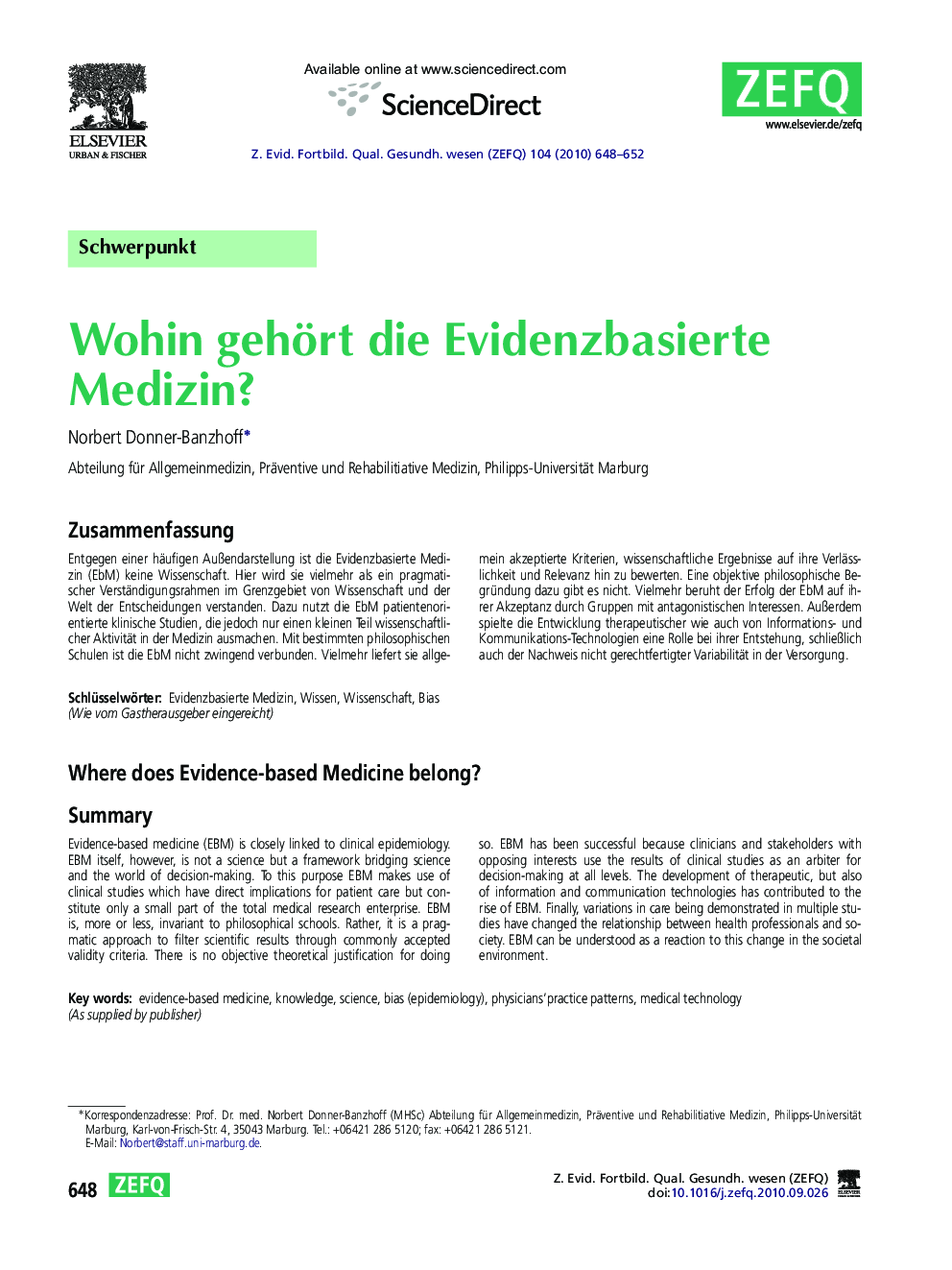| Article ID | Journal | Published Year | Pages | File Type |
|---|---|---|---|---|
| 1095635 | Zeitschrift für Evidenz, Fortbildung und Qualität im Gesundheitswesen | 2010 | 5 Pages |
Abstract
Evidence-based medicine (EBM) is closely linked to clinical epidemiology. EBM itself, however, is not a science but a framework bridging science and the world of decision-making. To this purpose EBM makes use of clinical studies which have direct implications for patient care but constitute only a small part of the total medical research enterprise. EBM is, more or less, invariant to philosophical schools. Rather, it is a pragmatic approach to filter scientific results through commonly accepted validity criteria. There is no objective theoretical justification for doing so. EBM has been successful because clinicians and stakeholders with opposing interests use the results of clinical studies as an arbiter for decision-making at all levels. The development of therapeutic, but also of information and communication technologies has contributed to the rise of EBM. Finally, variations in care being demonstrated in multiple studies have changed the relationship between health professionals and society. EBM can be understood as a reaction to this change in the societal environment.
Keywords
Related Topics
Health Sciences
Medicine and Dentistry
Public Health and Health Policy
Authors
Norbert Donner-Banzhoff,
